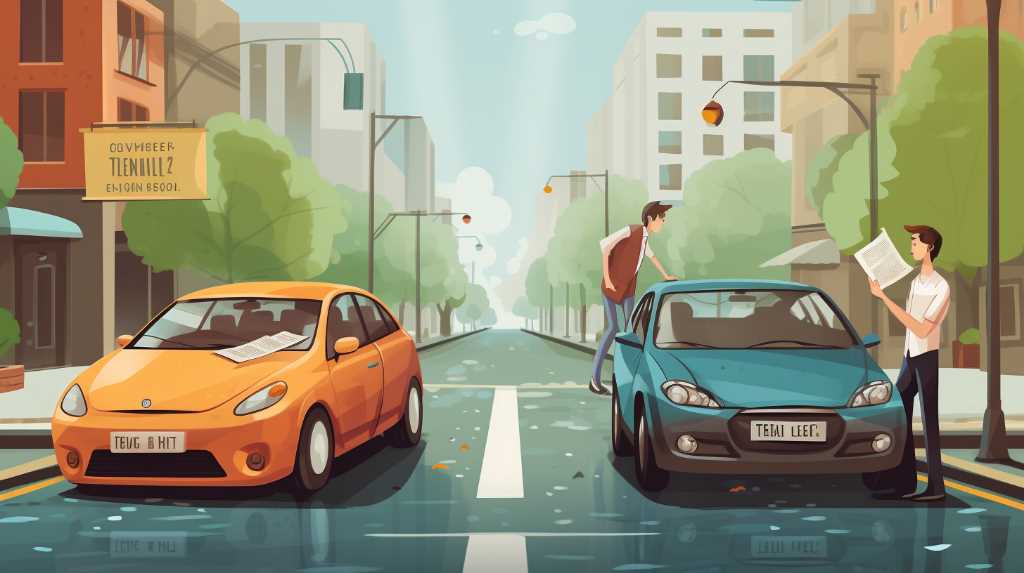
After a car crash, figuring out who was at fault is really important because it can affect legal issues and who pays for damages. You might wonder if you should say it was your fault. We’ll talk about why figuring out fault can be complicated, what could happen if you admit fault, how to talk at the accident scene, and how insurance companies get involved.
We’ll also look at other ways to handle the situation that keep you honest without causing you problems. It’s very important to be careful and know your rights and what you’re supposed to do.
Understanding Fault Determination
Figuring out who is at fault after a car accident requires careful study of what happened. The police and insurance companies look into this. The rules can be different in each state. For example, in states with an ‘at-fault’ system, the driver who caused the crash has to pay for the damage. But in ‘no-fault’ states, everyone involved uses their own insurance, no matter who caused the accident.
Investigators will look at clues from the scene, what witnesses say, and the traffic laws to figure out what happened. It’s important for people in the accident to know that saying it was their fault right away can affect the investigation. They should just swap contact and insurance details and let the experts do their job.
When talking about changing the ‘temperature’ setting in the OpenAI GPT model to 0.3, it means making the AI’s responses more predictable and less likely to make varied or unexpected answers.
Legal Implications of Admitting Fault
One critical aspect to consider is that admitting fault at the scene of a car accident can have significant legal consequences. When an individual acknowledges responsibility, this admission can be used as evidence in legal proceedings, potentially affecting the outcome of any lawsuit or insurance claim.
It’s essential to understand that fault determination is a complex process influenced by multiple factors, including police reports, witness statements, and local traffic laws. An offhand admission may overlook these nuances, inadvertently binding you to liability that may not be entirely yours.
Instead, remaining factual without explicit admissions preserves your legal position, enabling a more accurate assessment of responsibility through due process. This strategic restraint protects your rights and can lead to a fairer resolution of the incident.
Communication at the Accident Scene
When you’re at the site of a car crash, it’s really important to talk clearly but be careful about what you say. Make sure to swap contact and insurance info with everyone involved.
But when you chat about the crash itself, try not to say too much. For example, saying things like ‘I didn’t see you’ or ‘I’m sorry’ might make it seem like you’re saying it’s your fault, even if it isn’t. This could affect who is held responsible later on.
Instead, just check that everyone is okay and take pictures and notes about what happened. Doing this helps to keep things fair if there’s a legal case later and protects your side of the story after the crash.
The Role of Insurance Companies
Knowing how insurance companies handle claims after a car crash is important before you say it was your fault. These companies decide who is at fault and how much money everyone gets, based on the policy rules and the law. They look at the accident carefully, checking what evidence there is, what witnesses say, and what the law says.
If you say it’s your fault too soon, you might mess up the investigation. This could lead to a quick but wrong decision that’s not good for you. You might end up having to pay more than you should. So, it’s best to know how insurers work before you say anything about who caused the accident.
This way, you understand what might happen with your claim and your money.
Alternatives to Admitting Fault
After a car crash, it’s better not to quickly say it was your fault. First, you should take pictures, get contact details from others involved, and look for any witnesses. This helps you understand what really happened.
Pictures, stories from people who saw the crash, and the weather or road conditions can help show who is truly at fault. This information is very important for insurance companies and lawyers when they decide who should be responsible.
If you stay calm and don’t admit fault, you protect your rights. Tell your insurance company about the accident right away and give them all the evidence you have. This careful way of handling the situation is better than saying you’re guilty too soon.
It makes sure that in the end, what really happened is taken into account.
Conclusion
It’s important not to say you caused a car crash right away. Saying sorry can lead to trouble with the law and high costs. Wait for experts like police and insurance agents to look into it.
This way, you keep your rights safe and let the facts decide what happens next, not a quick ‘I’m sorry.’